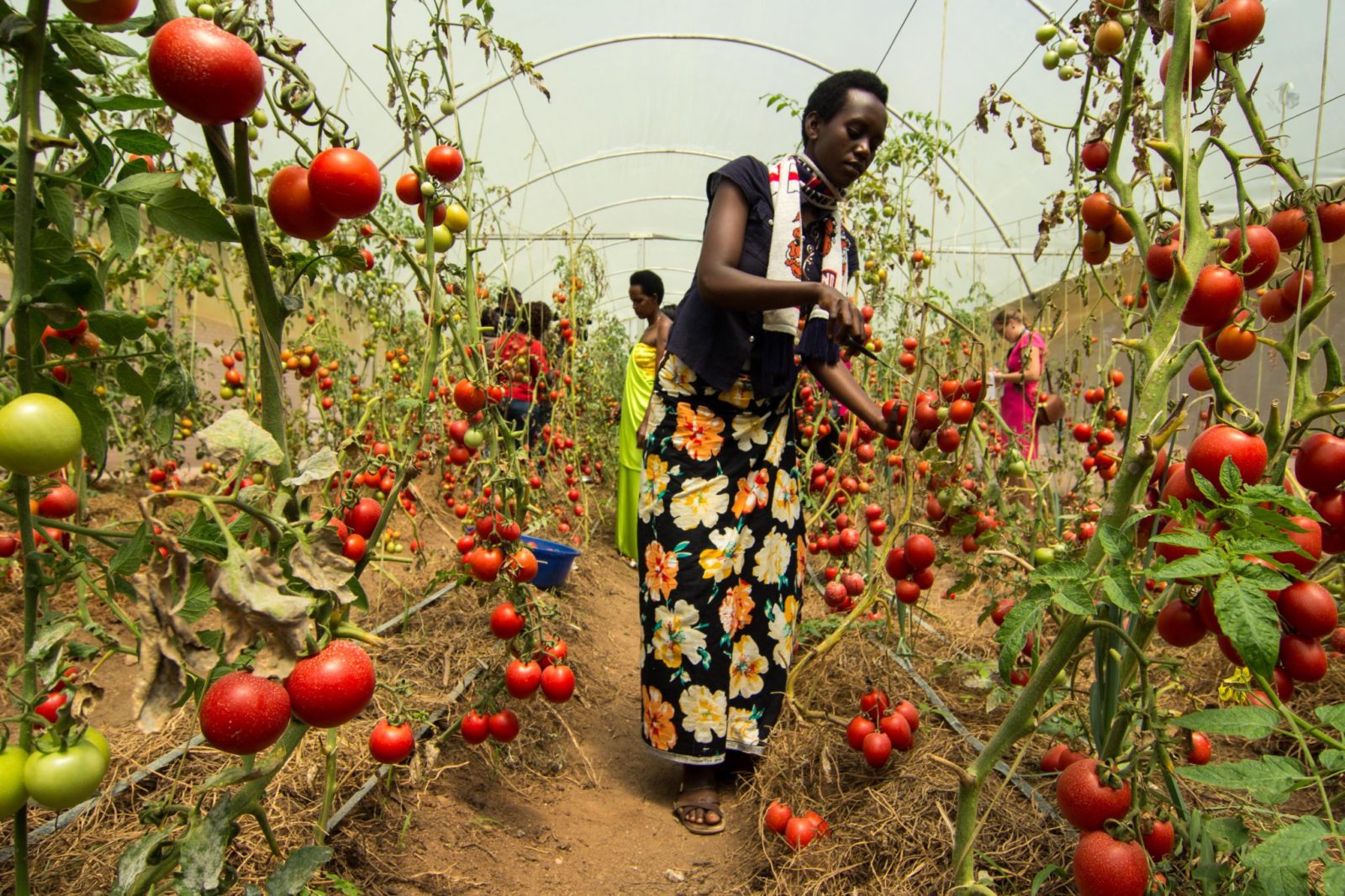It’s a scenic two-hour drive from Kigali to the rural landscape of Kinazi in Rwanda’s southern province. Being the only journalist in this field mission led by the energetic and dynamic Phumzile Mlambo-Ngcuka, Executive Director of UN Women, has its advantages.
Firstly, there’s a grand welcome awaiting us at the other end.
Barefoot children and grateful women greet the convoy, erupting in song and dance in pink, yellow and blue costumes that put the beautiful hillsides to shame. The men and infants are huddled under umbrellas in the warm sun, and the women give the occasion “so much zest”, as Mlambo-Ngcuka later says.

In Kinazi, UN Women partners with Terimbere Mutegarugori, a cooperative bringing together 93 women from various backgrounds to enable them to financially support themselves and their families through agricultural initiatives.
This group is one of 11 cooperatives supported through the Imali Project, meaning ‘wealth’. Currently, they are being given seed money, modern greenhouses and training to increase tomato and mushroom production. This project is financed through core funding to UN Women, from the Government of Korea and in partnership with the Imbuto Foundation, headed by Rwanda’s First Lady Jeannette Kagame.
That the Rwandan government is committed to gender promotion is evident even in this tiny village.
Women are an unprecedented 63.8% of Rwanda’s parliament. Yet, there is need to ensure they are given skills to generate daily income, develop a savings mindset, upgrade their skills and sustain their communities.
As Mlambo-Ngcuka tours the greenhouse inspecting rows and rows of red, juicy tomatoes, soon to be sold to the market, the farmers around her swell with pride. This project has changed their lives.
In just two years of operation, the results are there to see. Members are using the money to pay the children’s school fees, and have also opened savings accounts to transition to the next level of empowerment.
“Food is a woman’s issue. It’s your responsibility to make sure the nation is well-fed, to make sure that out of the good land, you also have opportunities. You feed your children and yourself and you also come here to generate the surplus to sell, and [you get] income. You have done well,” said Mlambo-Ngcuka in her address to them.

“We should also remember the other cooperatives and the 11 greenhouses spread throughout Rwanda. Together you can create a critical mass and take charge of the market. Sitting in New York, I should be able to eat a tomato from Imali. I want to be in South Africa, and eat a tomato from Imali,” she said.
Truly, you help a woman, you help the world.
